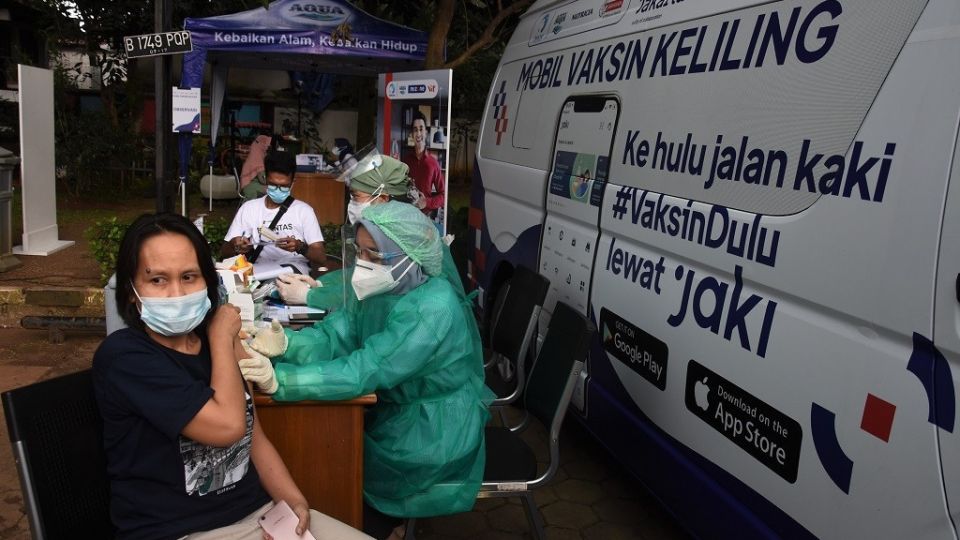October 17, 2022
JAKARTA – President Joko “Jokowi” Widodo has officially rolled out Indonesia’s first developed COVID-19 vaccine Indovac for adult primary shots, instructing his administration to seek ways to achieve self-sufficiency in vaccines.
A group of adults received their jabs on Thursday in the event at state-owned pharmaceutical company Bio Farma in Bandung, West Java, marking the launching of the new vaccine.
The company is expected to manufacture around 20 million doses a year for the initial phase of production. “
Next, it can produce 40 million [doses of IndoVac vaccine], and if the market needs more, [the production] can reach around 120 million doses,” Jokowi said during the event.
IndoVac – previously called the State-owned Enterprises (BUMN) vaccine – is a recombinant subunit vaccine that was developed by Bio Farma in cooperation with Texas-based Baylor College of Medicine beginning in June of last year.
The Food and Drug Monitoring Agency (BPOM) approved IndoVac for emergency use late last month. The homegrown vaccine has also been granted a halal certificate, meaning it can be administered in line with the Islamic faith in Muslim-majority Indonesia.
“This is the result of hard work by our young generation, who managed to develop the new vaccine,” Jokowi said.
He instructed the Health Ministry and the State-Owned Enterprises Ministry to continue to push and support Bio Farma in producing and developing more vaccines for various diseases and eventually export more vaccines to other countries.
“So that it can generate a bigger revenue for the country and we can become self-sufficient in vaccines,” he said.
The government has been aware of the importance of developing local COVID-19 vaccines since the beginning of the pandemic but it currently relies on China’s Sinovac and the Western-made Moderna and Pfizer-BioNTech mRNA jabs.
Now that Indonesia produces its own COVID-19 vaccines, the government is planning to stop importing vaccines from other countries and will start to rely on local productions to meet Indonesia’s vaccine needs.
However, with COVID-19 inoculation demand dwindling despite the government’s various efforts to boost the rollout and with the end of the pandemic in sight, it remains unclear whether health authorities could effectively distribute the new vaccine to the public.
Epidemiologists have said that homegrown vaccines and booster shots remain crucial for Indonesia even when the coronavirus became endemic. They said people with underlying health conditions and the elderly would likely need at least one booster shot per year to maintain their immunity against the virus.
BPOM is expected to soon issue an emergency use authorization for another homegrown vaccine called InaVac, previously dubbed the Merah Putih (red and white) vaccine after the Indonesian flag colors. The vaccine has been developed since the early days of the pandemic by Airlangga University in East Java and will be manufactured by local firm Biotis Pharmaceuticals Indonesia.
The drug regulator has also approved an mRNA vaccine developed in China by Abogen-Yuxi Walvax, making Indonesia the first country to do so. The vaccine will be locally produced in Indonesia by Jakarta-based bio-pharmaceuticals producer Etana Biotechnology Indonesia through a vaccine-technology transfer.


